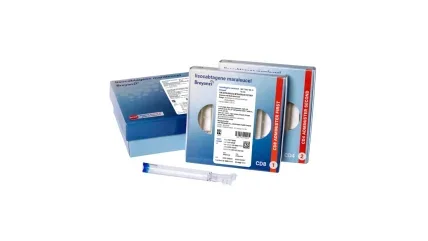
Bristol Myers Squibb (BMS) has received accelerated approval from the US Food and Drug Administration (FDA) for Breyanzi (lisocabtagene maraleucel; liso-cel) to treat relapsed or refractory follicular lymphoma (FL).
Breyanzi is a CD19-directed chimeric antigen receptor (CAR) T cell therapy.
It is now indicated to treat adult FL patients who were subjected to at least two or more systemic therapies in the US.
In March this year, the FDA granted accelerated approval for Breyanzi to treat adult patients with relapsed or refractory chronic lymphocytic leukaemia (CLL) or small lymphocytic lymphoma (SLL).
Breyanzi is administered through a single infusion in a dose comprising 90 to 110 x 106 CAR-positive viable T cells.
Its approval for follicular lymphoma is based on results from open-label, global, multicentre, Phase 2, single-arm TRANSCEND FL study.
The primary outcome measure is defined as the overall response rate (ORR) and secondary outcome measures consist of the complete response (CR) rate, duration of response (DOR), progression-free survival, and safety.
According to the results, the ORR stood at 95.7%, and the CR rate was 73.4%.
Bristol Myers Squibb said that the responses were both rapid and durable, with a median time to response of one month. The median DOR has not yet been reached.
At 12 months, 80.9% of responders maintained their response, and at 18 months, 77.1% of responders did the same.
Initial findings from the primary analysis of TRANSCEND FL, unveiled an ORR of 97% in efficacy-evaluable patients, with 94% of patients achieving a CR.
Bristol Myers Squibb cell therapy commercial head and senior vice president Bryan Campbell said: “Breyanzi is a cornerstone of our cell therapy portfolio, providing a differentiated profile across a wide array of B-cell malignancies.
“Today’s approval of Breyanzi for relapsed or refractory FL provides an option with potential for lasting remission in a one-time infusion and a safety profile that allows for administration and monitoring in both the inpatient and outpatient setting in an increasing number of certified treatment centres in the US.”
Further approval for this indication is subject to the clinical benefits in subsequent confirmatory trial(s).






